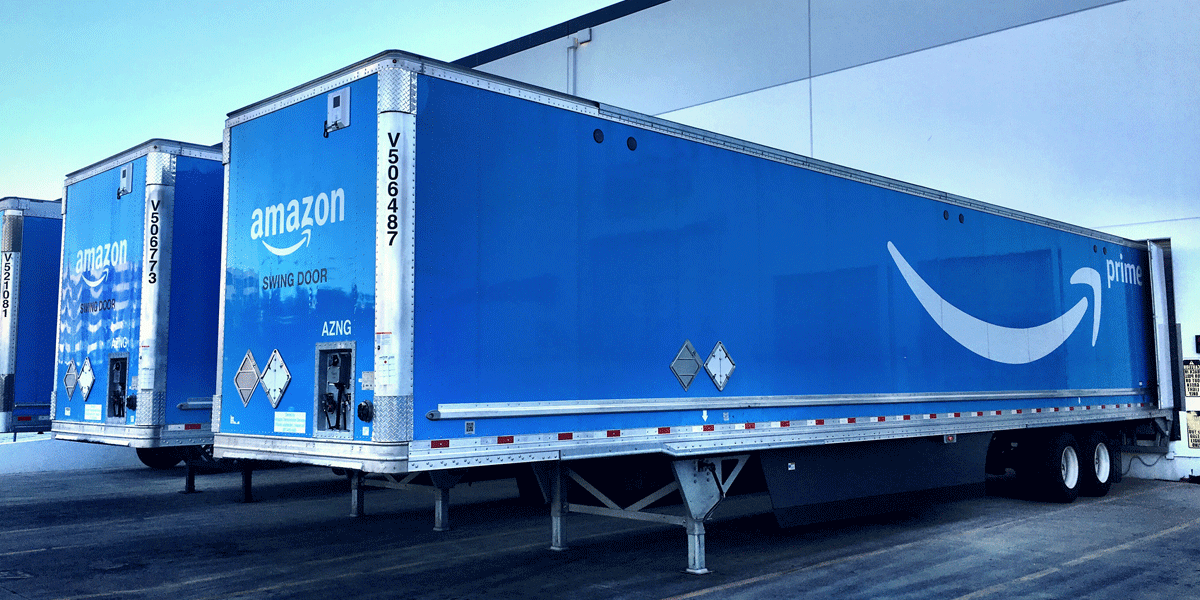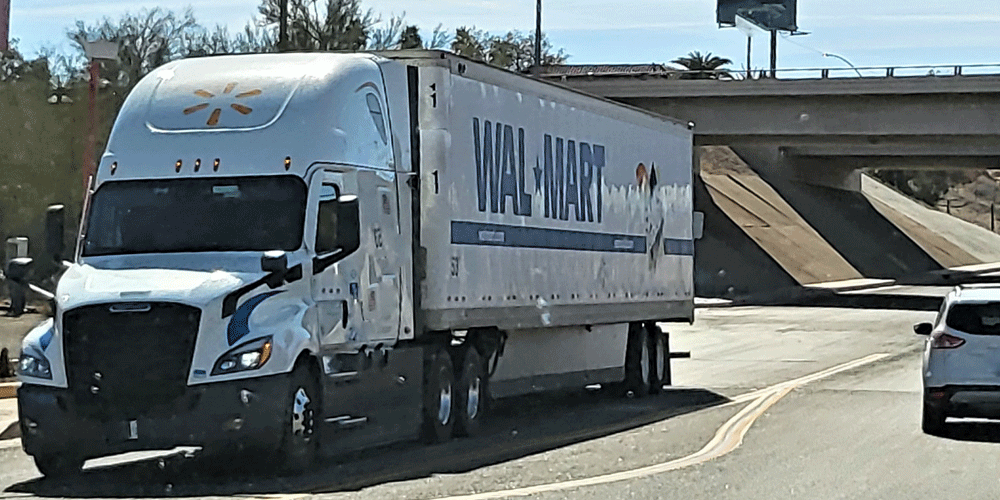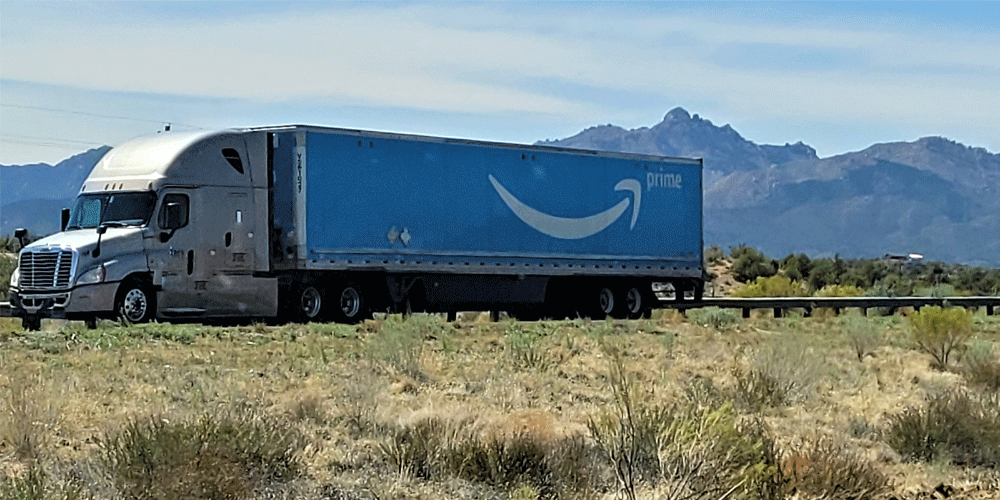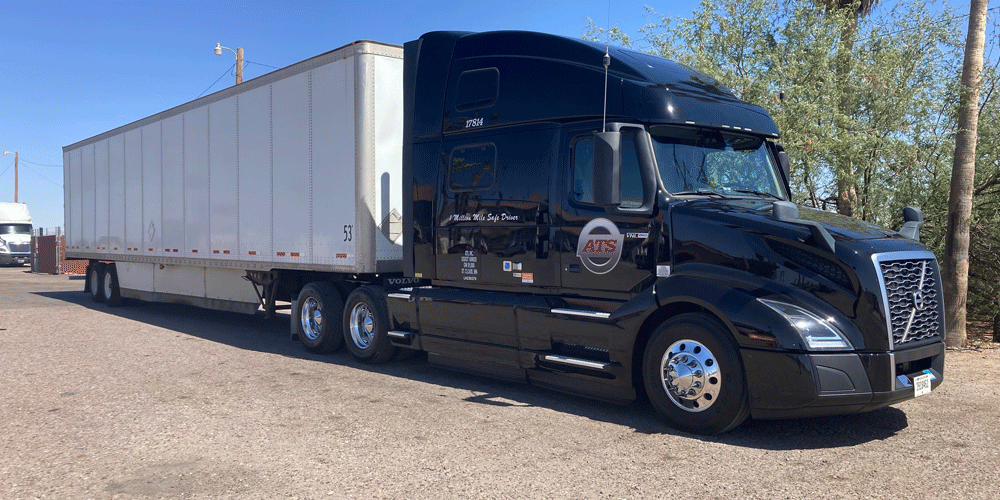Lars has been in the trucking industry his whole working life. He started working in the shop when he was just 16 years old. Lars spent about 10 years in operations before moving to driver recruiting. He spent five years in recruiting before joining the ATS team as the vice president of driver recruiting. He currently serves as the vice president of van operations. No day is ever the same in the trucking industry and Lars enjoys the challenge that presents.
When you make your next move to a different trucking company, are you going to a private fleet or a for-hire fleet?
Whether you’re new to the industry or you’re simply looking to make a change, it’s in your best interest to make a good switch. Unless you want to be job-hopping forever (which ultimately will not serve you or your wallet well), you should do the research to find the best company to drive with.
One of your first steps when deciding on a company to drive for should be to consider if you’d rather join a company with a private fleet or a for-hire fleet.
Don’t know the difference?
I’m here to help you learn more about each of them. As the vice president of recruiting at Anderson Trucking Service (ATS), a for-hire fleet that has been in the industry for over 65 years, I want to make the decision easier on you — whether you decide to work for a for-hire fleet like ATS or otherwise.
When you read this article, you’ll understand:
- The definition of a private fleet and a for-hire fleet
- The difference between a private fleet and a for-hire fleet
- The pros and cons of each type of fleet
- How to choose the right fleet (and company) to work for
Let’s dive in!
What is a Private Fleet?
A private fleet is a company’s in-house fleet of trucks that generally hauls the company’s goods specifically to and from warehouses to stores and customers.
While they generally only haul their goods specifically, there may be some exceptions. For instance, they may have freight going to one location and no freight coming on the backhaul, so they’ll haul something on the way back to headquarters to make a profit.
They may also ship freight from warehouse to warehouse in a loop and at some point in the loop they’ll haul someone else’s freight to fill a truck.
Because private fleets are focused on hauling their own freight, making a profit on their shipping isn’t typically a goal. Its mission is simply to haul the goods to the store (or customer) as quickly as possible because the company can’t make money unless the goods are in the store.
However, some private fleet companies have begun to try to run their fleets like trucking company and they’ll try to make a profit off their shipping.
Examples of private fleets are Walmart, Sysco and Ashley Furniture.
What is a For-Hire Fleet?
A for-hire fleet is a fleet that provides transportation of goods and property to a shipper. These types of fleets provide tractors, trailers and drivers to shippers. In contrast to private fleets, for-hire fleets don’t own the freight they’re hauling. Traditional trucking companies are for-hire fleets.
Also called a dedicated fleet, shippers may enter into an agreement with a for-hire fleet and that fleet will be the only fleet that hauls that company’s goods.
Examples of for-hire fleets include ATS, Prime, Bison, Old Dominion and Swift.
What are the Pros and Cons of Private Fleets?
To understand which fleet is the right fit for you, you have to understand the pros and cons of each. Let’s start with private fleets.
Pro: The Pay is Typically High
While this isn’t a hard and fast rule, it’s typical for private fleets to pay well and they often pay more than for-hire fleets (though the gap is narrowing in the current market). There are several reasons for this, with the first of them being that there are fewer overhead costs at a private fleet.
They also don’t need to make money on shipping, so profit margins are far different than they are for traditional trucking companies. While a for-hire fleet will have to take a percentage of everything that’s hauled to make a profit and stay in business, a private company doesn’t have to because they’re shipping their own freight. That means they can pay their drivers more.
Pro: Benefits are Usually Good
Private fleets are, more often than not, massive companies. The buying power that gives them is massive. It widens their benefit pool and gives drivers options.
Their collective buying power usually leads to benefits options. If you have a family and are concerned about health insurance, vacation time and retirement benefits, this can be a major plus for you.
Con: You’ll Be Working for a MASSIVE Company
As I mentioned before, when you work for a private fleet you’ll typically be one small part of a large company. There are some small mom-and-pop companies that employ small private fleets — like construction companies — but it’s less common so they’re more difficult to find.
Even the largest trucking companies typically don’t hold a candle to the largest private fleets. For example, a trucking company like Swift is considered a huge mega-carrier. Swift doesn’t even begin to touch the size of Walmart, which is considered the highest revenue company in the country — just ahead of Amazon and CVS. A for-hire trucking company doesn’t even show up in the top 250 on the Fortune 500 list of largest companies in America.
For some, this can be seen as a major con — especially if you have no desire to work for corporate America.
Because you’re just one small division in a larger company, you might feel like a number in a sea of numbers. You might not feel like a valued member of the team, but rather another cog in the wheel.
Con: You Might be Subjected to Layoffs
When you work on a private fleet for a large company, you may be subjected to layoffs. If a company has to lower their budget by a certain percentage, they may lay off employees without thinking twice. It’s not personal, it’s simply a calculated decision.
This is something that almost never happens at for-hire trucking companies (the pandemic aside).
Con: Seniority is King
While private fleets typically pay well and offer great schedules, it can be more difficult to receive those benefits until you also have seniority with the company. A lot of private fleets reward seniority. If you’re willing to stick around, the pay-off will be worth it.
While dedicated routes are typically more readily available at private fleets, they may be easier to get as you’re with the company longer.
What are the Pros and Cons of For-Hire Fleets?
Now that you understand what the pros and cons of private fleets are, let’s see how for-hire fleets compare. These will be the more traditional trucking companies.
Pro: They Have a Variety of Driving Options
While a private fleet is typically only hauling one type of trailer/goods, for-hire fleets have every type of freight variety you can imagine. If you want to haul vans, flatbed trailers, hazmat loads, reefers, tankers or heavy haul and specialized loads, you can. If you want to haul cars, you can. If you want to do strictly hot shot trucking, you can. You’ll definitely find a for-hire fleet hauling every type of freight.
You’ll also get a lot of freight variety — especially if you’re hauling flatbed trailers. That can be very appealing to many drivers.
Pro: They Vary in Size
If you don’t want to work for a super small or a super large carrier, you don’t have to. While those are typically your options in a private fleet, you’ll get a lot more size variety to choose from out of a for-hire carrier. There are plenty of small, medium and large trucking companies to choose from.
Pro: You Aren’t Just a Number
When you work on a for-hire fleet you’re working for a company that specializes in trucking. They speak your language, they understand your needs and they give you the support you need — at least they will if you find the right company.
At a private fleet, you’re just one division in a much larger company, and trucking isn’t what the company specializes in.
At a for-hire fleet, their only goal is to move freight, so the drivers are the most important asset. At a large company with a private fleet, that’s not the case.
Pro: You’ll Stay Busy
As I mentioned above, a for-hire fleet’s purpose is to move freight. The harder you work, the better it is for the fleet. Good fleets will try to keep you busy. When you drop off one load, you’ll have another waiting for you to pick up.
On the other hand, a private fleet’s goal is simply to make sure that one load gets to the customer. They might absolutely need you to get a load from Detroit to Chicago, but once you get it there, the priority isn’t necessarily to keep you busy and moving again; it’s just to meet the core need of the business to get the customer what they need.
At a for-hire fleet, you are the core of the business. They’ll keep you moving and hauling one load after the next.
Con: They May Not Pay As Well
Typically, for-hire fleets don’t pay quite as well as private fleets. That’s because the operating costs are different.
Trucking companies have to make a profit, so they typically have to take a certain percentage off the line haul of every load. They have to have support staff to find freight, dispatch drivers, pay drivers and support drivers. That can have an impact on just how much drivers get paid.
Additionally, they can only pay you the way they can bill the customer and the way the customer is paying. There’s more flexibility with pay as part of a private fleet. Some over-the-road drivers are even paid hourly on private fleets.
Con: The Benefits Might Not Be the Greatest
Even the largest trucking companies don’t always have as much buying power as a large corporation. That means they may not offer the greatest benefits in comparison to private fleets.
This isn’t always the case though, so carefully review pay at the companies you’re looking at.
Con: You May Not Be Treated as Well
You’ve probably heard some stories about working for a trucking company, and some of those horror stories are true. There are some trucking companies that don’t treat their drivers with respect, and this isn’t something that we typically hear with private fleets.
How to Choose the Best Company For You
There’s no hard and fast rule to help you choose the best company.
Your first move should be to figure out what your options are depending on your location. You could have your heart set on a company but not be in their hiring area. Find some companies where you can work and still get the home time you want.
Then make a list of what’s most important to you. Which company will give you that? Do you want to work for a small company? Do you want to be a small piece of a larger company? That will guide your decision.
At the end of the day, remember that pay is not the most important thing. There are other factors you need to consider.
Find an Opportunity at ATS
Do you want to work for a large company where hauling freight is just one piece of the puzzle? Or do you want to work for a company where trucking is what they live and breathe? Carefully consider which environment is best for you.
After reviewing this article, have you decided that a for-hire fleet is right for you? ATS is looking for drivers!
We work with owner-operators, lease drivers and company drivers for dry van and flatbed positions. We also have positions that allow you to grow and start moving larger and larger loads.
If this piques your interest, let’s have a conversation.





